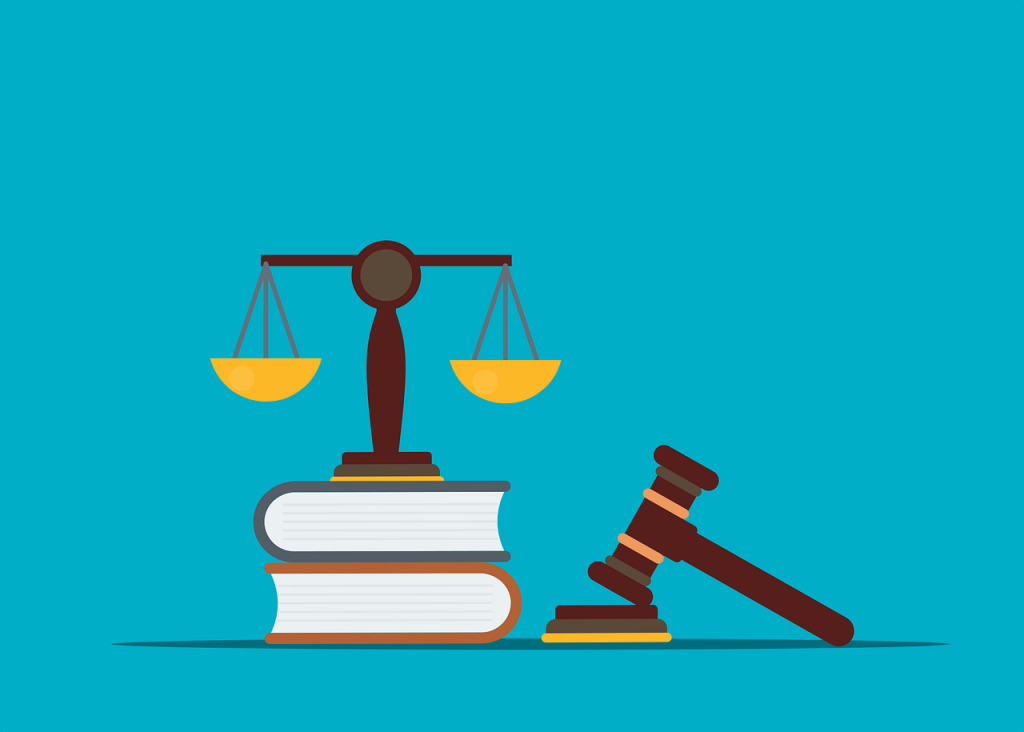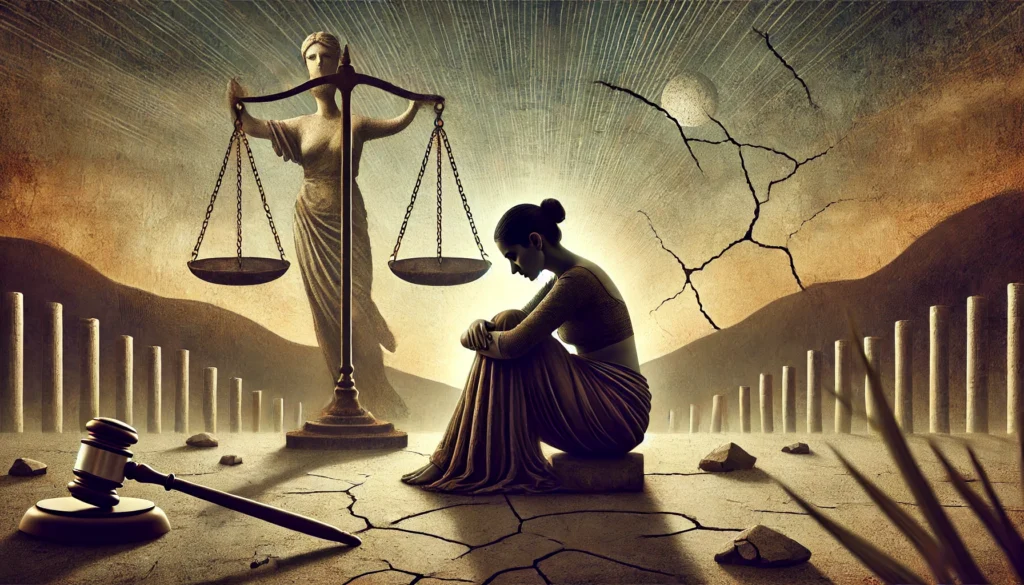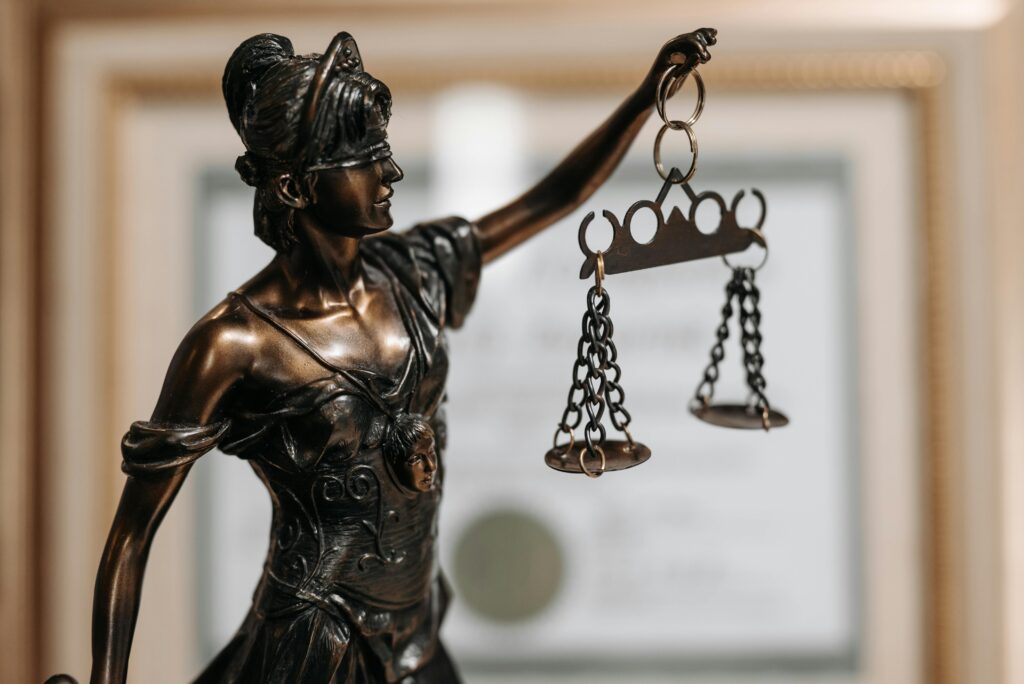Published on 19th February 2025
Authored By: MAGIZHINI M
The Tamilnadu Dr. Ambedkar Law University, School of Excellence in Law
INTRODUCTION
The case, Association for Democratic Reforms vs. Union of India (2024), was a landmark case in the context of politics and law, through the emphasis made on the electoral bond scheme where the constitutional validity of the said scheme was challenged under Article 32 of the Indian Constitution. “Unlimited Corporate Donations: A Violation towards free and fair election”,[1] The Supreme Court declared Electoral bonds as unconstitutional and arbitrary. The decision was declared on 15th February, the high time before the 2024 Lok Sabha elections were about to begin. Electoral Bonds are basically the means used by corporations at large and others to make political contributions without disclosure of the parties making these contributions.
Political Funding has remained a decades-long discussion and controversy, where the authority of the corporates to make it was provided under The Companies Act, 1956, it was later banned, then limited, and subjected to amendments between the course of 1969-2003. The Companies Act, 2013 again raised the limit towards 7.5% of the average profit. Though the non-disclosure of the information of the parties making electoral bonds was raised with the object of curbing black money and preventing the setting up of a parallel economy, it gave rise to the contentions of being violative of the principle of free and fair election and transparency which were the underlying principles of a democratic government.[2] Thus, the case was raised questioning the constitutional validity of the Electoral Bond Scheme, 2017.
FACTS OF THE CASE
The Companies Act, of 1956 allowed corporations to make political contributions as an act under the authority of law. However, in 1969 political contributions were banned following the Santhanam Committee Report, 1969,[3] they were reintroduced with limits and caps on the amount of political funding in the year 1985. The amendments made during the earlier part of the 21st century not only allowed political contributions by contributions but also gave the corporations tax deductions. Section 182 of the Companies Act, 2013 incorporated the provisions for corporate political funding with restrictions and accountability standards.[4]
The Finance Act, of 2017 introduced amendments to various Acts such as the Companies Act, of 2013, the Taxation Laws (Amendment) Act, of 1978, The Income Tax Act, and The Election and Other Related Laws (Amendment) Act, of 2003. The comprehensive changes made under the Acts were, that the limit on the contributions was taken off, disclosure of the amount on behalf of the parties was made less transparent, the mandate which was earlier to contribute to each party to reduced to disclose only the total amount spent. A benefit of the exemption on the income received by the parties as the political contribution was made with certain conditions, and also the contributions were tax deductible, and the political parties who were earlier mandated to disclose the contributions through electoral bonds under the Representation of People Act, 1951 was removed. The Reserve Bank of India and the Election Commission of India raised objections towards the Electoral Bonds Scheme, and then the petition was raised challenging the constitutionality of the Electoral Bonds Scheme and the amendments made in the Acts thereby.
ISSUES OF THE CASE
- Whether the Electoral Bonds Scheme that allowed anonymous contributions to political parties is not violative of the right to information under Article 19(1)(1) of the Indian Constitution?
- Whether the unlimited political contributions, omitting the 7.5% cap, be violative of Article 14 and infringe the basic democratic principle of free and fair elections?
ARGUMENTS OF THE PETITIONER
The learned counsel on behalf of the petitioner raised the following contentions,
- Though the objective of the Electoral Bonds Scheme had emphasized transparency, regulating political contributions through proper banking channels, cash donations are permitted which would not come under the control of the scheme.
- The removal of the 7.5% cap on the amount that is being contributed, would lead to a ginormous increase in the number of shell corporations which would make the financial aspects take control over the electoral process of the country.[5]
- Free and fair election forms a part of the basic structure doctrine, which had been previously emphasized by the Court. Certain particular corporations funding the political parties would create a status of obligation between the contributor corporation and the political party, which would dilute the participation of the citizens equally and would lead to bias exhibited by the parties towards the contributors when the party comes into power.
- Non-disclosure of the information regarding political contributions would be a direct violation of the right to information of the citizens which had been vested upon them under Article 19(1)(a) of the Indian Constitution. Every voter has the right to know information regarding the affairs of the public, which includes information on the contributions that are made to the political parties. In addition, it violates the rights to information of a shareholder to a much greater extent, forbidding their right to know information about the affairs of the country.
- The non-disclosure further violated Article 21 of the Indian Constitution as it had led to corruption which infringes the right to live in a corruption-free society and it had not potentially curbed black money as it had been objectivised.
ARGUMENTS OF THE RESPONDENT
The learned counsel on behalf of the re-raised the following contentions,
- The scheme was intended to provide the right to privacy of the donor (the contributor). This was made to ensure that the donors are protected against the political parties, which would cause danger to the donors from the opposition parties when the information on to whom the contribution was disclosed.
- The channel through which the electoral bonds were transferred could only be made through proper official banking channels, that encourage only the transmission of legal cash and prevent the flow of illegal cash which would result in curbing black money.
- The right to information could not be invoked about the electoral bonds because public interest would be the reason behind invoking the constitutional rights, where in this case, the central government would be the sole repository of information on the electoral bond and the right to information lacks the public or governmental interest.
- Disclosure of every information in the aspect of the government, without any public interest would not be desirable. Article 21 of the Indian constitution is balanced off with the consideration for public interest. In addition, the secrecy in voting can be equated to the secrecy to be maintained in making political contributions, protecting the donors’ interest as it would in the case of voting in the election.[6]
ANALYSIS AND JUDGEMENT
The five bench judges of the Supreme Court held that Electoral Bond Scheme was void and unconstitutional. It was declared that the people, as voters are entitled to the right to information regarding the political contributions made towards the electoral process. It rejected the contentions of the respondent who claimed that the non-disclosure of the information was to protect the donors. The Supreme Court further directed the Election Commission of India and the State of Bank to put an immediate pause on the sale of Electoral Bonds and to disclose all the information that they had collected regarding the electoral bonds.[7]
Section 154 of the Finance Act, 2017 removed the mandate on corporations to disclose all the information on contributions which were made by the donors. This was declared violative of the right to information available to the voters in the public interest under Article 19(1)(a) of the Indian Constitution. The removal of the limit on the political contribution was held to be invalid and violative of Article 14 of the Indian Constitution.
The Court declared that the voters are entitled to the right to information on the political contributions made towards a party because these are predominant factors that would shape the opinion of the voters on any candidate, therefore that information is bound to be disclosed.
The main instrument in deciding the case was the use of the proportionality test to decide the issues of the case, the predominant pointer in the test is to strike a balance between the fundamental rights of the citizens and the public interest, and whether the objective could be attained would be the usage of any method which is less-impulsive and striking the balance of the citizen’s fundamental rights. As a result, the Court declared that the necessity test in attaining the objective would not be deemed the sole means of attaining the objective, where alternative sources such as the electoral trusts could be employed to strike a balance between fundamental rights and public interest. The contention of the respondent to equate the secrecy in voting to that of the secrecy of the political contributions was negatived by the court and was provided that both the considerations could not be equated to one another because the secrecy in individual person voting is for the protection of the individual’s interest, whereas the another would shape the opinion of the voters towards the candidates. Both are unequal factors to be placed on the scale for comparison.
IMPACT OF THE CASE AND CONCLUSION
The Supreme Court held the Electoral Bonds Scheme unconstitutional and arbitrary and directed the State Bank of India and the Election Commission of India to disclose every pre-stored information which was collected on the transactions concerning electoral bonds. As a result, many sectors of people evaluated the data that had been disclosed and started making assumptions comparing the data and the decisions on government tenders. These were invoked as some of the reasons that halted and stopped the pace of governmental actions. And finally, the petition to set up a Special Investigation Team was rejected by the Court on the reason that the inferences made were only assumptions.
To conclude, the case of Association for Democratic Reforms vs. Union of India (2024), served as an initiative by the Supreme Court to make the electoral process transparent and also protect the rights of the citizens as voters in a democratic country. Only the non-disclosure would be deemed a problem, however, the essential mandates on the inferences retrieved from the data would lead to an establishment that is well balanced in protecting the fundamental right to information and also the data disclosed to be used only for legitimate purposes.
REFERENCES
[1] Awstika Das, ‘Allowing Unlimited Corporate Donations Through Electoral Bonds Violates Free & Fair Elections: Supreme Court Voids Companies Act Amendment’ (LiveLaw 15 February 2024)< https://www.livelaw.in/top-stories/supreme-court-unlimited-corporate-contributions-electoral-bonds-companies-act-free-fair-elections-249575>
accessed 25 December 2024
[2] Sanat Nandkishore & Netraa Rathee, ‘Breaking Bon: Analysing the Supreme Court’s Verdict in Association for Democratic Reforms v. Union of India’(Constitutional Law Society, National Law University Odisha 17 June 2024) < https://clsnluo.com/2024/06/17/breaking-bonds-analysing-the-supreme-courts-verdict-in-association-for-democratic-reforms-v-union-of-india/> accessed 27 December 2024
[3] Ibid
[4] B.R. Gavai, ‘Association for Democratic Reforms vs. Union of India (Indian Kanoon 15 February 2024) <https://indiankanoon.org/doc/121499464/> accessed 26 December 2024
[5] Sanat Nandkishore & Netraa Rathee, ‘Breaking Bon: Analysing the Supreme Court’s Verdict in Association for Democratic Reforms v. Union of India’(Constitutional Law Society, National Law University Odisha 17 June 2024) < https://clsnluo.com/2024/06/17/breaking-bonds-analysing-the-supreme-courts-verdict-in-association-for-democratic-reforms-v-union-of-india/> accessed 27 December 2024
[6] B.R. Gavai, ‘Association for Democratic Reforms vs. Union of India’ (Indian Kanoon 15 February 2024) <https://indiankanoon.org/doc/121499464/> accessed 27 December 2024
[7] SCO Team, ‘Supreme Court Review: Top 10 Judgements of 2024’ (SCO Supreme Court Observer 20 December 2024)<https://www.scobserver.in/journal/supreme-court-review-top-10-judgements-of-2024/> accessed 27 December 2024




